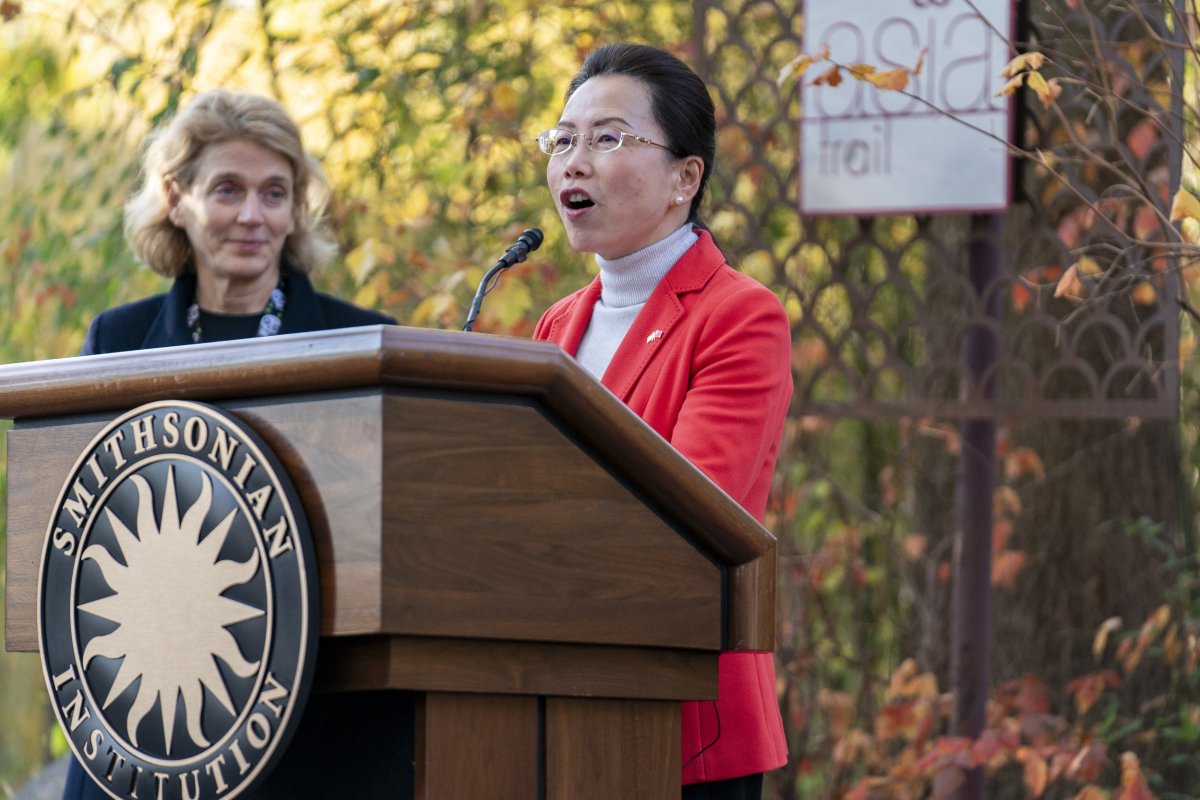The Chinese ambassador to Panama, Xu Xueyuan, has called on the U.S., telling it to "learn some respect."
She wrote her comments in Spanish in an article titled "US, please learn to respect," in Panama's newspaper La Estrella de Panamá, which was published on Monday.
Why It Matters
Tensions between the U.S. and Panama are high after President Donald Trump repeatedly suggested the U.S. should demand the return of the Panama Canal if Panama does not reduce the fees it charges American ships. He has also frequently accused China of controlling the key global trade route.
This week, Panama's President José Raúl Mulino has said the country will not renew a trade and development agreement with China.
This all signals a shift in international relations between the three countries, which could have consequences all over the world.
What To Know
Xu wrote in her article that China respects Panama, making special mention of the permanent neutrality of the Panama Canal, according to a translation by the Global Times.
She said: "Panama is so important to the US that it cannot tolerate Panama cooperating with China. The US established diplomatic relations with China in 1979, so why does Panama's decision to do the same 38 years later make the US furious? The establishment of diplomatic relations between China and Panama was transparent, free of backroom deals or financial incentives. The US-China trade volume is as high as $688.28 billion, and more than 70,000 US businesses have investments in China. Why does the US view Chinese enterprises operating in Panama as a threat?"

Xu went on to address the canal again, saying: "The only time the canal was blocked in history was not by a foreign adversary, but by the US itself."
It comes with Mulino's announcement that Panama will not renew a 2017 memorandum of understanding to participate in China's Belt and Road Initiative, which suggests the country may be hoping to appease Trump amid his threats of retaliation unless it reduces China's influence.
The initiative is a global infrastructure development strategy aimed at enhancing trade, investment, and economic cooperation by building infrastructure across Asia and other parts of the world.
It has been criticized for burdening participating countries with debt, as many struggle to repay Chinese loans for large-scale projects. More than 150 countries and 30 international organizations have signed agreements to participate.
Newsweek contacted the U.S. Department of State for a response and was directed to spokesperson Tammy Bruce's statement, which said: "Secretary [of State Marco] Rubio informed President Mulino and [Panamanian Foreign] Minister [Javier] Martínez-Acha that President Trump has made a preliminary determination that the current position of influence and control of the Chinese Communist Party over the Panama Canal area is a threat to the canal and represents a violation of the Treaty Concerning the Permanent Neutrality and Operation of the Panama Canal.
"Secretary Rubio made clear that this status quo is unacceptable and that absent immediate changes, it would require the United States to take measures necessary to protect its rights under the Treaty."
What People Are Saying
Speaking to reporters on Sunday, Mulino said his meeting with Rubio "paves the way" for building new relationships and increasing potential U.S. investments in Panama.
In a series of posts on X, formerly Twitter, Rubio said the U.S. must remain "vigilant in protecting" the Panama Canal from the Chinese Communist Party and that the U.S. "cannot and will not" allow China's growing control over the canal.
President Donald Trump told reporters on Sunday: "What they've done is terrible. They violated the agreement. They are not allowed to violate the agreement. China is running the Panama Canal. That was not given to China. That was given to Panama, foolishly. But they violated the agreement. And we're going to take it back or something very powerful is going to happen."
What Happens Next
While Panama appears to be moving toward a better relationship with the U.S., the relationship between all three countries remains unclear.
Update 2/5/25, 11:35 a.m. ET: This article was updated to include a response from the Department of State.
About the writer
Jordan King is a Newsweek reporter based in London, U.K. Her focus is on human interest-stories in Africa and the ... Read more



